
Happy Sunday and Happy Father’s Day to all of those special dads out there. We have spent the morning curled up in our jammies, watching shows together, and plowing through a dozen muffins with a pot of coffee. I love how my hubby chooses to celebrate his day!
Today I am also excited to share with your an interview with Andromeda Romano-Lax as we discuss her incredible book, Behave. If you are looking for a compelling piece of historical fiction to add to your summer stack, I have a feeling you will enjoy this one! I’m SO THRILLED that her book is available for $1.99 this month so be sure to get this one while it is at such an affordable price! Treat yo self!
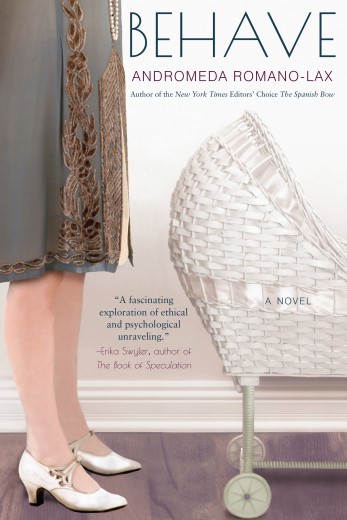
Fans of Masters of Sex will appreciate this fictional exploration of Dr. John Watson and his research that was revered by so many to not spoil children based on his research that he developed during his time at Johns Hopkins. Disturbingly, tests are performed on infants to yield responses from them, all being assisted by Rosalie Rayner. An affair develops between the two that taints their reputation in the medical community and adds strain to an already difficult marriage. When they have children of their own, Dr. Watson uses his own research as a basis for how they are to parent which creates squeamish moments for the reader. Despite it being an uncomfortable storyline, it held my interest all the way through, even when the characters were most unlikable.
Behave was featured in our Must-Reads Book List for May!
Let’s chat with Andromeda today about this incredibly compelling storyline she built around Rosalie!

Your first round of thanks in your acknowledgements went to veteran psychology textbook editor Christine Brune, who had casually mentioned the controversial case of Little Albert at a party you had attended. Were you aware of this case before this interaction and why were you so excited to share this story from Rosalie’s point of view?
John Watson was vaguely familiar to me from old college psych classes. I remembered something about a baby (“Little Albert”), rats, and conditioning, but I may have been mixing in memories of other famous psychologists like B.F. Skinner. What I didn’t know about Watson interested me more than what I did. I’d never heard that his lover and later wife, Rosalie, was such a major part of his research. Nor did I realize that Little Albert’s identity and health were being questioned in ways that make Watson’s original theories even more suspect. I have never been as sure about a new interest quite this quickly. Within a few hours of the party, when I was home Googling close to midnight, I felt determined to tell Rosalie’s side of the story. Why? Not only because I wanted to tell the story of the “woman behind the man” but also because I was specifically curious how a woman would have reacted to these particular kinds of experiments involving potential psychological harm to babies. What was she thinking?
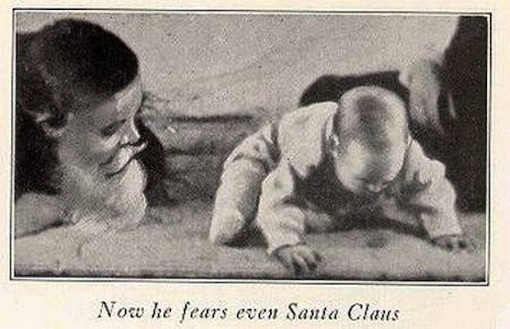
I found much of the research that was conducted on these infants made me squeamish and uncomfortable as a reader, but I understand that you didn’t find these infant experiments as shocking. Why do you think this element of their research didn’t bother you as much and what element, if any, did you struggle the most with?
One reason is that I think that most of the babies–except for Little Albert–were experimented upon very briefly in mostly benign ways. We may not like to picture a baby turning blue with rage as his nose is pinched shut or as he is plunged into cold water, but it probably won’t create lasting damage, and in Watson’s mind, the cost was tiny compared to the benefit. That same baby, he believed, would grow up in a healthier and safer world, for which a few minutes of discomfort was small price to pay. Viewing this from a historical perspective, we can empathize with the scientists who had no better models for how to study infant behavior. They certainly didn’t feel they were breaking rules, because the rules didn’t yet exist. (They do now, and thank goodness!) If one element bothers me the most, it’s not just the cruelty of the Little Albert experiment (which was more intense and ran longer than the other baby experiments), but the meaningless of it, because it was bad science. I’m also greatly disturbed by the longer-term popular effect of the Watsons’ interpretations of the Little Albert study. The harm passed on to tens or hundreds of thousands of other babies indirectly based on the Watsons’ ideas about parenting–like the idea that mothers shouldn’t kiss, cuddle, or in any way bond with their own children–probably dwarfs the harm inflicted on any one baby in the lab.
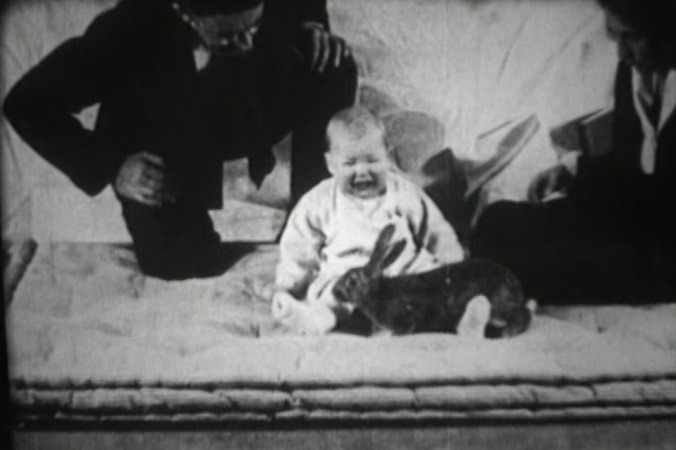
Since there is very little known information about Rosalie, what was your biggest hurdle as a writer developing her storyline? Do you feel that since there was so little information that it granted you more creative liberties with your story or did you find it more challenging to craft Rosalie’s point of view?
The lack of information freed me in some ways, but I did not want to invent a woman out of thin air, since that wouldn’t offer me or the readers any real lessons about Rosalie or her time period (the ‘20s and early ‘30s), which is such a critical one for women. For this reason, I grabbed onto any verifiable fact like a lifeline. For example, I came across a brief note written by Rosalie to her alma mater, Vassar, saying that she expected to be working in advertising soon (which never happened). This was just after her public humiliation as the outed homebreaker in the divorce scandal involving John Watson and his first wife, Mary. That one note reveals so much, especially since Rosalie rarely reported her post-college activities. Clearly, she was hoping to start a new professional life and wanted people to know about it. Without that one clue, I wouldn’t have been able to imagine Rosalie’s envy of Watson as he launched his own career in advertising, overshadowing her ambitions once again.
Rosalie & John utilize the same childrearing techniques they develop in their book on their children. You later disclose how that worked out for these kids (I won’t spoil it for the reader). Even though I found these childrearing tactics extreme, don’t you feel like we all are experimenting a bit as parents to try to figure out what is best for our children? Do you think any of these theories they came up with are still being held today?
You’ve nailed it, Amy. Yes, we are all experimenting on our children, following the latest “science” as well as popular advice that changes decade by decade, all mixed together with our observations of other parents–whom we can’t help but judge, because we are trying so hard to figure out what works and what doesn’t. We all want to do the right things. Parenting trends seem to swing between extremes: more attachment, less attachment; blame nature, blame nurture. This is yet another reason to sympathize with Rosalie and John even while we might recoil at some of their practices. They had the best intentions, and they worked hard at understanding children. And sometimes they were right! Aside from the bad advice, they had some easy-to-overlook good insights that were not common at the time, such as the idea that parents need not physically punish their children, and that routines in general help children feel safe and become independent.
Did you admire John Watson or did you loathe him? Do you think that his difficulties with his parents ultimately shaped his own theories about childrearing?
Maybe I’m contrary, but I didn’t loathe John Watson at all. At most, I was frustrated by him. I think he let his own childhood experiences (as you suggested), his own appetites and his ambition lead him down some unproductive paths. Elements of his personality–the flirty charisma, the showmanship and brash opinions–are still rewarded today. I am confused, in fact, why some readers seem to think he’s the devil, and a very retro devil at that, when a good many politicians, CEOs, and adored celebrities behave more outrageously than he ever did. I’ve noticed that some women readers who get really riled up do so because they had a boss, professor or lover who had Watsonian qualities. I’ve received emails from both women and men who said the novel hit a little too close to home. I’m glad that readers get riled up, especially if it helps them look at their own choices and relationships more clearly. On the other hand, I hope Watson’s positive side isn’t lost in the process. Especially in his early years, he was committed to making science more objective, he was anti-racist, he encouraged public debate about substantial topics, and he truly did seem to support women in science–at least until he made an about-face and decided wives shouldn’t work, after all.
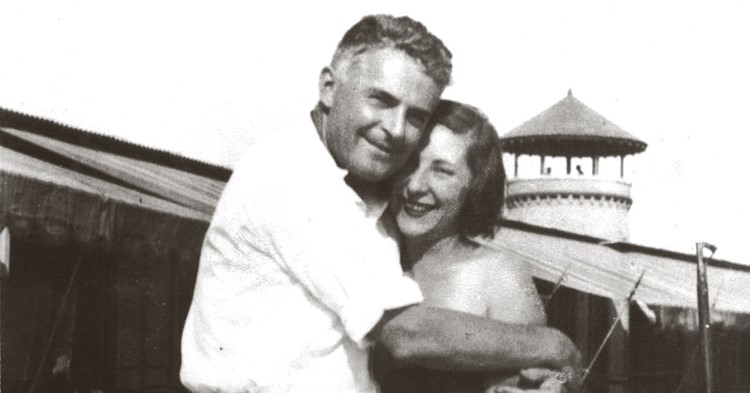
In your story, John is unfaithful during both of his marriages. Was this true or fictionalized? Why do you think Rosalie stayed with him, after giving up her own career and reputation, and do you think if this happened today that she would have still stayed?
Oh, the affairs are verifiable fact. There was no trouble finding documentation of Watson’s incessant wandering. He was also quite open about his own skepticism of marriage. He didn’t think the institution would last beyond the 20th century. (Surprise!) Again, we have to see Rosalie through the filter of her own times. She was married to someone who was passionate, clearly in love with her (I do believe that), ambitious, and successful. Instead of being just a jilted lover without much hope of a career, she was able to become a 1920s housewife who was encouraged to help him co-write scientific books and articles. There was only one brief window of time in which I think they might have broken up and would break up even more easily today: after they were both booted out of the academic world and their affair made headline news. But then she quickly got pregnant. Big oops. And I do think it was an oops, since he didn’t favor women having children too young.
Could you share one of the most surprising pieces of research you found while preparing for this book? Did you have any interview that really stood out to you during this research process?
There were so many research surprises! Most involved archives work rather than personal interviews. To cite just one: finding out that other popular parenting books before Watson’s were just as mean-spirited and disdainful of mothers. The journalist and satirist H. L. Mencken even wrote one. This helps us understand how Watson’s ideas fit into his time period (he was actually more level-headed than his peers) But even more, it tells us what our own poor grandmothers and great-grandmothers were dealing with. If we thought mother blame was new, we just have to go back a century ago, to that era when infant mortality was finally dropping but mothers were still being blamed for damaging their children in every possible way.
If we are interested in learning more about the Little Albert controversy or in John Watson’s theories, can you share books or documentaries that might help us learn more about the true story behind your book?
A truly revealing documentary or drama is yet to be made. The best sources are scholarly papers written by Ben Harris, who has doggedly written about Watson and served as mythbuster for over three decades, and more recently, Hall Beck (writing in cooperation with researchers Levinson, Irons, Fridlund, and Goldie), who has proposed controversial ideas about Little Albert’s true identity and possible neurological impairment. There are some amazing scientific sleuths out there and I recommend their work in an appendix at the back of my novel.
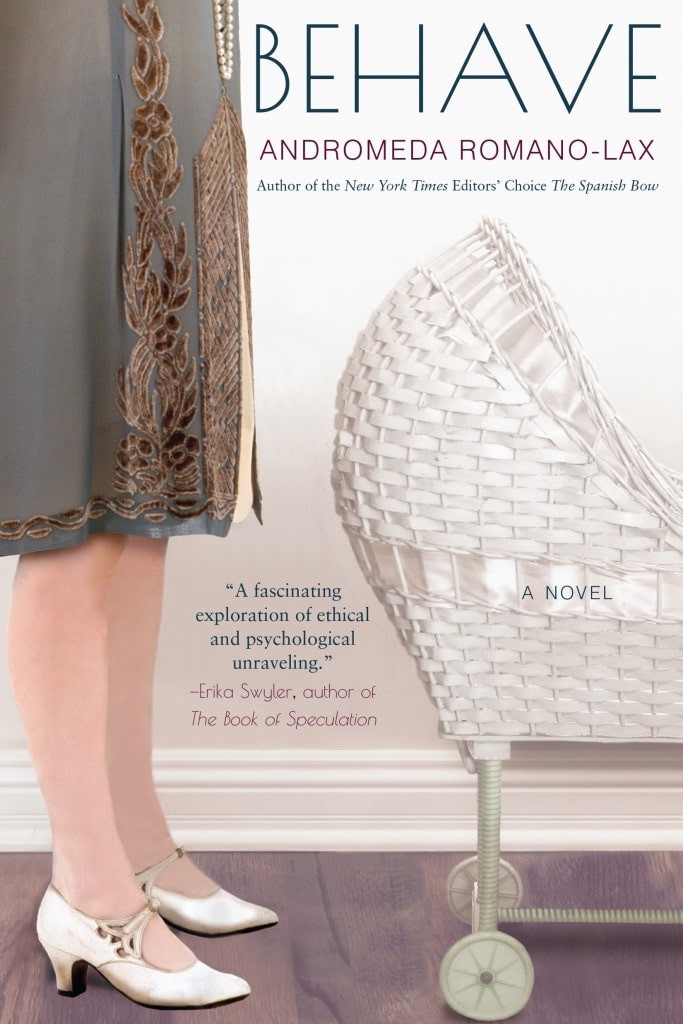
You can connect with Andromeda Romano-Lax on her website! I’m always thankful for these moments with writers and I hope you will pick up this amazing book! You can always connect with me on GoodReads, through our books section of our site, and you can read our entire Sundays With Writers series for more author profiles. Happy reading, friends!
*This post contains affiliate links!